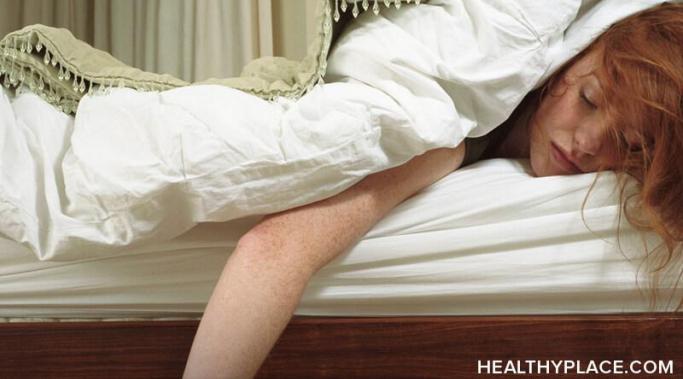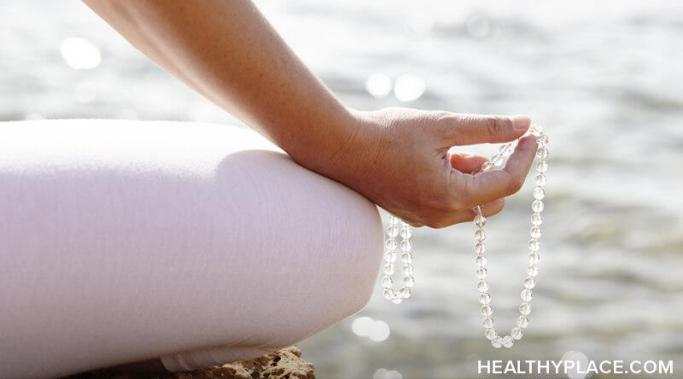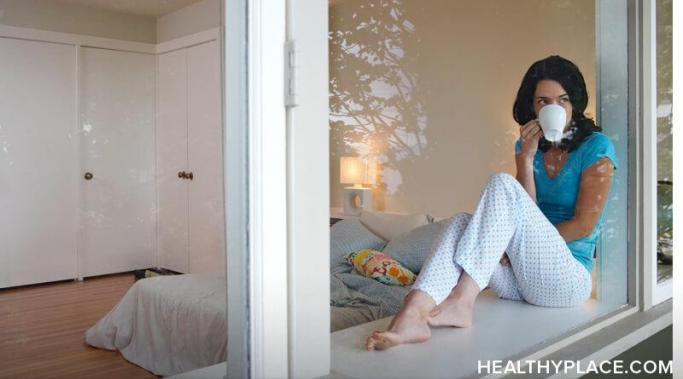Emotional resilience is very important to a person's wellbeing. It is a way to describe how well you mentally bounce back from upsetting situations and events. Resilience can be crucial in mental illness recovery where stress can aggravate symptoms. Being able to better handle stress improves stability.
Mental Illness and Self-Care
There are a lot of resources out there for how to deal with seasonal depression in the wintertime, but what about summertime depression? Coping with summertime depression is difficult because the sun is shining, the days are long, and the pressure to enjoy ourselves is high. For some of us though, summer brings with it unique challenges that can cause worsening depression symptoms.
I've struggled a lot with getting a good night's sleep. Almost every night I laid awake with my racing, anxious thoughts. I was exhausted physically, but couldn't quiet my mind. Once I finally fell asleep it wasn't for long. I would get up several times throughout the night. Some days I couldn't keep my eyes open at work. I would find a way to take a nap if at all possible. My situation felt desperate so I have been on a quest the past several months to discover ways to get a good night's sleep.
A few months ago I underwent eye muscle surgery to better align my eyes. This is a problem I have struggled with since birth, so it really gave my confidence a boost to look in the mirror and see straight eyes. The surgery was elective and something I really had to ask for.
Mala beads may not help everyone, and, for me, dealing with my mental illness means medications come first. However, being open to learning additional methods to improve your life and functioning is also important. When you discover new and healthy ways to cope, go with it. Everyone is different, so use what works for you. I recently saw a post on Facebook about mala beads. I was intrigued and bought a necklace. I was excited when they arrived, and even though meditation had been difficult for me in the past, I was definitely willing to give it a try with my new mala beads.
Having a mental health recovery-friendly home is important because an important piece of mental illness recovery is feeling safe -- and if you're lucky -- relaxed. We can't always control our environment and surroundings, but I do think there are ways to arrange and organize your home to aid your mental health recovery. Here are seven ways to make your home more mental health recovery-friendly. They are not major changes, just simple ideas that might make a difference.
Nothing is better than a snow day - nowhere to go, nothing in particular to do. Do I catch up on tasks around the house or go back to bed? My Keurig is calling. I dump a bunch of sugar in my tea and take a seat by the window. Our street is lost in the snow. The outside world can wait. My day is free and full of possibilities. Time for a little extra self-care. Spending a day at home can be a great way to recharge. Here are four activities I did during the snow storm today.
There are benefits to anxiety although my anxiety is debilitating at times. It prevents me from doing the things I want and should do. Some days it takes a lot of courage just to leave the house. Anxiety is a huge part of my life, and it's really difficult to think there could be anything positive about it. However, there are a few benefits to anxiety, and I hope this article can shed just a tiny bit of light in the darkness of those who struggle with it.
Breakthrough symptoms caused by mental illness can really hinder your progress towards goals; however, reaching your goals is not impossible. Stress exasperates mental illness symptoms, but that doesn't mean you should give up. Understanding your symptoms as well as your limits can be crucial to your success.
Seeing a psychiatrist for the first time can be scary. But everyone around me knows that I'm very open about my experience receiving mental health treatment, so I talk about it. I work as an advocate for recovery. Many friends and family have asked me for insight when it comes to asking for help. I am always happy to provide encouragement and support, even if you're seeing a psychiatrist for the first time.









